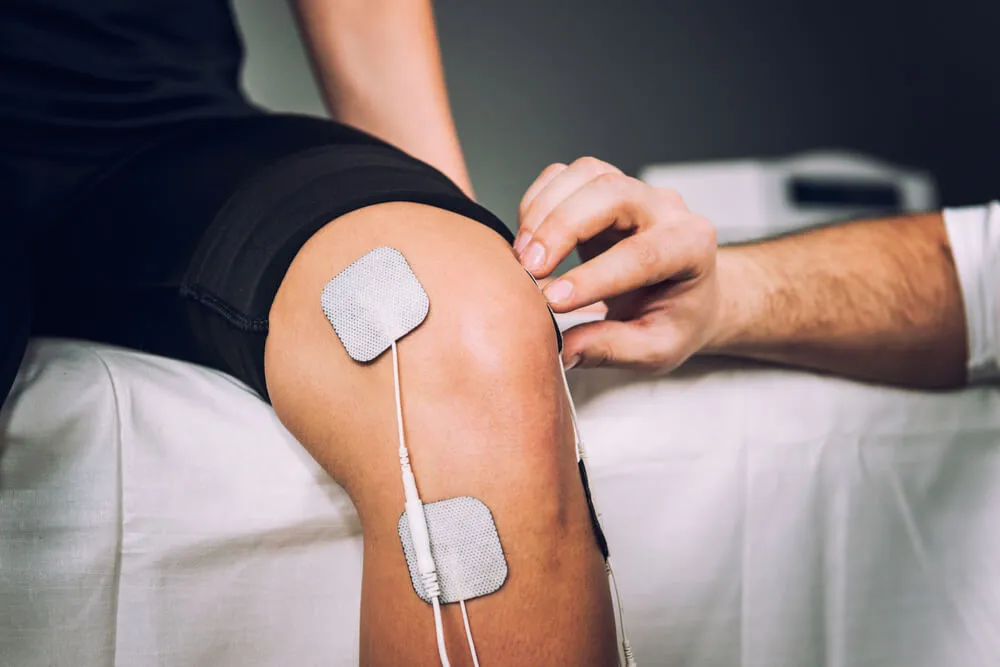And arthritis diagnosis doesn’t signal the end of your life, but rather the beginning of a new chapter. In fact, with the right lifestyle changes and treatments, you can have a great life even with arthritis. Here are our top eight tips for living a full life with arthritis:
Educate yourself about living with arthritis.
The first step to living with any chronic health condition, including arthritis, is to educate yourself about it. There are lots of myths out there about arthritis, so make sure that you are getting your information from trusted sources, such as your doctor, the Arthritis Foundation and government health agencies. There are several different types of arthritis, so it’s important to know which one you have and how far along your symptoms are. Keeping yourself informed will allow you to be an active, educated member of your care team.
See your doctor regularly.
Going to the doctor is hardly everyone’s favorite activity, but it’s very important when you have arthritis. As soon as you notice arthritis symptoms developing, or worsening of your current symptoms, go ahead and schedule an appointment. Arthritis gets worse when left untreated, so it’s critical to get the medical professionals involved as soon as possible. A doctor will be able to help you determine what kind of arthritis you have and what method(s) of treatment are most appropriate. Your doctor may also refer you to a variety of specialists, including rheumatologists, pharmacists, physiotherapists, occupational therapists and podiatrists, so make sure to follow up about any additional appointments.

By Lisa F. Young / Shutterstock.com
Take your medications.
Your doctor will likely prescribe you some medications to help manage your arthritis symptoms. Make sure to take your medication regularly according to the instructions (i.e., in the morning or at night, with or without food, etc.). It can be hard to keep track of your pills, especially if you take many of them each day, so find a system that works for you. Many people find it helpful to use weekly pill holders that have separate, clearly labeled containers for each day (and sometimes time of day). They fill them up once a week, usually on Sundays, and then they are set to go for the entire week.
Try out some lifestyle changes.
Most of the world is not designed with arthritis in mind — just try to open one of those smooth, round door handles that are ubiquitous, and you’ll see what we mean. This can make staying independent very tough as your arthritis develops. However, there are certain changes that you can make that will make it easier to cope with arthritis. For example, adaptive clothing (such as women’s self dressing tops and men’s elastic waist pants) can help you continue to dress yourself even after mobility in your hands is compromised. Ergonomic utensils designed for those with arthritis allow you to continue feeding yourself. You may have to seek out these products since they aren’t mainstream, but they are well worth the effort to track down.

By Microgen / Shutterstock.com
Experiment with pain management techniques.
There are many different ways to manage pain from arthritis, including medication, hot and cold therapy, massage, acupuncture, TENS therapy and more. Different techniques work better for different types of arthritis, and the efficacy varies from individual to individual as well. Work with your medical team to experiment with these different pain management techniques to figure out which ones work best for you. You may wish to keep a journal or some other way of documenting the different techniques you have tried and how well (or not) they worked.
Find new ways to keep moving.
When you have arthritis, your preferred physical activities may no longer be an option for you, which is unfortunate because regular exercise is one of the best ways to manage arthritis pain. Talk to your doctor about exercise options that won’t aggravate your symptoms. For instance, if you used to be an avid long distance runner, but running hurts your knees too much now, you may still be able to do walks interspersed with intervals of jogging. And if you are new to exercising, it’s never too late to start. Look for low impact options such as water aerobics, swimming, indoor cycling and yoga. It may take some trial and error to find a type of exercise that works for you, but it’s so worth it!

By Rawpixel.com / Shutterstock.com
Get a support group.
As you figure out how to cope with arthritis long-term, having support is of great importance — not just from your medical team, but also from your friends and family. Don’t be afraid to ask people for help, whether that’s doing research on your behalf or driving you to doctor’s appointments. While you’re at it, you might also find it beneficial to seek out a community of other people who are also coping with arthritis. There are plenty of dedicated forums available online, and your doctor might also be able to make a recommendation for an in-person support group in your area as well.
Acknowledge your feelings.
Getting a chronic diagnosis, such as arthritis, can trigger an outpouring of feelings: frustration, shock, numbness, sadness, anger, depression, etc. Instead of suppressing them, acknowledge these feelings and process them. You may want to seek out a counselor or psychologist if you have trouble working through them. However, try not to sink into despair. Arthritis is very manageable, especially if caught early, and you can have a great quality of life with the right treatment strategies.
Follow these eight tips to keep living a great life — even with arthritis. If you think that you have arthritis, but haven’t been officially diagnosed yet, reach out to your doctor to schedule an appointment so you all can begin to devise a treatment plan.

Karen is a health blog author who has been writing about healthy living since 2013. She started her journey by adopting a vegan diet and eating only organic foods, but the more she learned, the more she realized that we should all be eating plant-based diets exclusively. As an expert in nutrition and wellness, Karen blogs to educate readers on how they can live happier and healthier lives through food choices!












